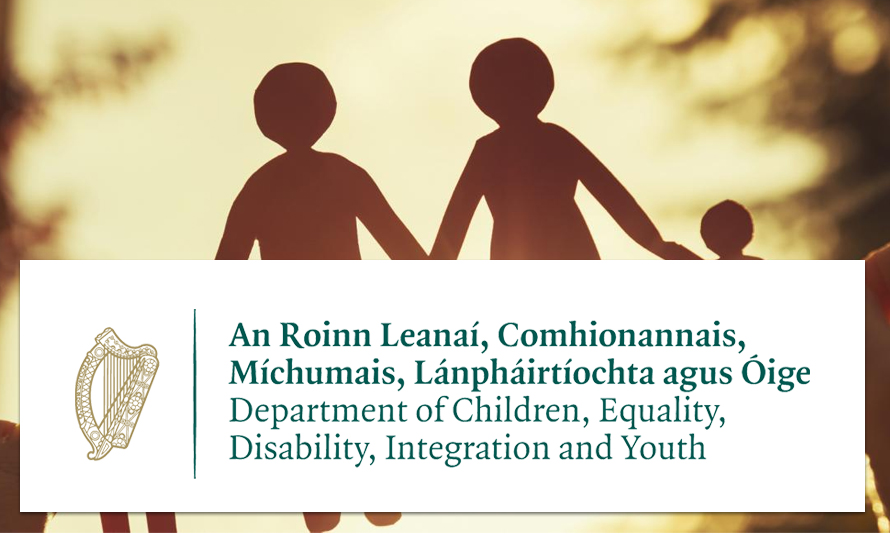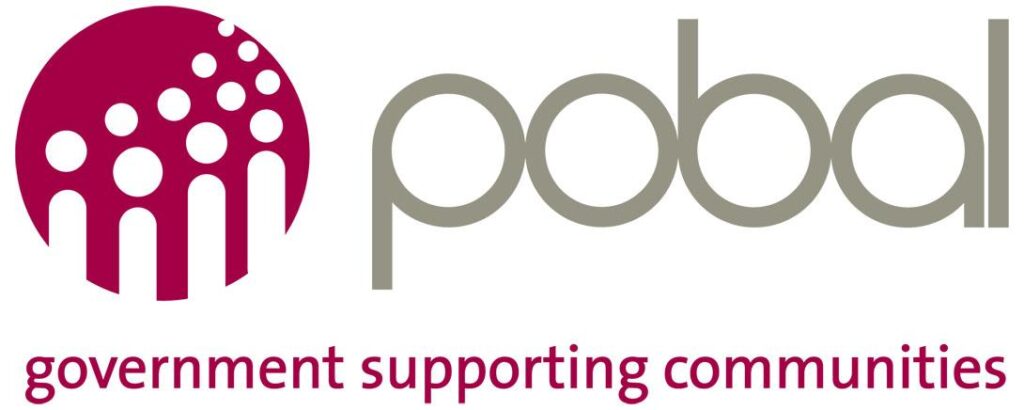From Department of Children, Equality, Disability, Integration and Youth
Published on 15 September 2022
Last updated on 15 September 2022
- Together for Better is the new funding model for Early Learning and Care (ELC) and School Age Childcare (SAC) launched by Minister O’Gorman today
- the new funding model includes the new €221 million Core Funding scheme, in addition to the Early Childhood Care and Education (ECCE) programme and the National Childcare Scheme (NCS)
- 9 out of 10 ELC and SAC providers – almost 4,000 services – have now signed contracts for Core Funding, committing to working in partnership with the State for the public good, and to a fee freeze on parental fees
- Together for Better provides the platform for investment in the sector to reach expenditure of at least €1 billion by 2028 to improve quality, affordability, accessibility and sustainability
The Minister for Children, Equality, Disability, Integration and Youth, Roderic O’Gorman, has today (15 September 2022) launched the new funding model for ELC and SAC, Together for Better.
Together for Better brings together 3 major elements, the Early Childhood Care and Education programme, including the Access and Inclusion Model (AIM), the National Childcare Scheme and Core Funding, and is launched as Core Funding comes into operation, with 90% of eligible services signing up.
Speaking today, Minister O’Gorman said:
“I am delighted today to launch Together for Better, the new funding model to bring transformative change to this vital sector. Together for Better supports improved affordability for parents; better pay and conditions for staff; improved availability for families through increased capacity; and greater financial stability for service providers.
“Together for Better provides a sound framework for future investment through the introduction of the new Core Funding scheme, along with continued investment in the Early Childhood Care and Education programme, AIM and the National Childcare Scheme.
“Core Funding, which begins today, is a step change in public management for the sector. I am delighted that 90% of services have chosen to come into partnership with the State by signing up. This substantial additional public money will promote the interests of children, their families and workers while ensuring continued sustainability for providers, and supporting expanded capacity.”
Core Funding was first announced in Budget 2022 with a full year allocation of €221 million. Core Funding guarantees that fees to parents in Core Funding Partner Services will not increase above those which were charged last year. This gives significant certainty to parents, and ensures that parents can enjoy the full benefit of future investments in the National Childcare Scheme, including the extension of the universal subsidy to children of all ages which came into effect in August, without the risk of increased State subsidies being absorbed by increased parental fees.
The scheme begins today, in alignment with the commencement of Employment Regulation Orders (EROs) for the sector. The EROs will mean improved pay for over 70% of workers in the sector, with specific recognition for different roles and qualifications, establishing a wage structure for staff. This historic achievement has been enabled by the investment in Core Funding.
There is also significant evidence of expansion of capacity within the sector. Record numbers of services have requested a Change in Circumstance on the Tusla register, primarily to increase the operating hours or number of child places being offered. Up to mid-August, there has been a 31% increase in Change in Circumstance applications from Early Learning and Care services and 261% increase in increase in change in circumstances for School-Age Childcare services compared to 2021.
Minister O’Gorman said:
“Together for Better is officially being launched today and already all the indications are that it is achieving significant and welcome change in the sector in relation to affordability, quality and accessibility. This is the first step towards significant further developments in the sector which will be introduced in the coming years.”
Notes
What Together for Better is
Together for Better is the new funding model for the ELC and SAC sector. From today in consists of three major elements, the Early Childhood Care and Education programme, the National Childcare Scheme and Core Funding.
It implements a series of recommendations in the Expert Group report Partnership for the Public Good. The Expert Group report was submitted to Government in December. Having examined the funding model for the sector in detail along with national and international evidence, and engaged in extensive consultation and engagement, the Expert Group made recommendations for a new approach to funding which today are being launched as Together for Better.
What Core Funding is
Core Funding is a new strand of funding to early learning and childcare services which will form part of the new funding model as recommended by an Expert Group and approved by Government in December 2021.
Core Funding is a payment to providers designed to meet the combined objectives of:
- improved affordability for parents by ensuring that fees do not increase
- improved quality through, among other things, better pay and conditions for the workforce
- supporting the introduction of an Employment Regulation Order through the Joint Labour Committee
- supporting the employment of graduate staff
- improved sustainability and stability for services
This is a new and different way of providing funding to the sector and is intended to support the development of a partnership relationship between providers and the State that reflects the public good dimension of ELC and SAC.
€221 million per year is available for Core Funding.
What Core Funding means for providers’ income
Core Funding will contribute to services’ sustainability and will significantly increase income for the overwhelming majority of services and provide greater funding stability.
Core Funding will be allocated based largely on capacity. Core Funding will give providers a stable income source based on the nature of the service they deliver. A provider’s income will now consist of Core Funding, NCS and ECCE subsidies, and parental fees. Structuring Core Funding primarily based on capacity means that services will have an allocation each year that will not fluctuate in line with children’s attendance.
The vast majority of services will see an increase in funding, and a very small proportion of services will see no change. No service will see a decrease in funding. For any service that does experience financial difficulties, a Sustainability Fund will be in place. This new strand of the Sustainability Fund, linked to Core Funding, will be designed to provide an extra safety net for providers. This will be open to both private and community providers.
What Core Funding means for ECCE services
Core Funding is equivalent to an increase of at least 9.5% in funding for ECCE services not led by a Graduate Lead Educator. At a minimum, for every ECCE child €78.75 per week is now available (compared to €71.90 previously from ECCE standard capitation and PSP combined).
Because Core Funding is paid in respect of places rather than children, effectively this could mean a greater ‘per child’ marginal increase if the service has unfilled capacity. With average ECCE occupancy of 9 children per staff member, Core Funding is equivalent to weekly per child capitation of €80.92.
With Core Funding, the overwhelming majority of ECCE services with Graduate Lead Educators will also benefit and no service will lose out.
What the conditions attached to Core Funding are
The full detail of the conditions are set out in the published Funding Agreement.
Some of the key conditions include:
- participating in the Annual Early Years Sector Profile (AEYSP)
- operating a fee management system, which requires no increase to fees in 2022/23 above September 2021 rates
- implementing practice frameworks
- developing, implementing and reporting on a quality action plan
- providing transparent and validated financial reports
- issuing a Parent Statement to all parents using the service outlining what they can expect
- offering the NCS and the ECCE programme to all eligible children
What the conditions around fees are and what they mean for parents
As a condition of receiving Core Funding, a Partner Service agrees not to increase the fee for any Service Type which was extant on September 30th 2021 or introduce an extra charge for any component of that Service Type.
An increased charge of any kind for an existing and unchanged Service Type will be in breach of Core Funding rules.
This also includes circumstances by which a change of fee policy would result in an increase charges to parents, for example, a service that offered a multiple child deduction cannot remove it.
Anything that had been “folded into” the 30 September 2021 fee cannot now be charged for individually; for example if meals were included in the fee, they cannot now be charged separately. The charges for items and services which were offered for free or at discounted rates on 30 September 2021 cannot be increased beyond these levels.
A Partner Service that has any Service Types that have not changed since 30 September 2021 may reduce a charge for any of those Service Types. They may also increase provision without increasing charges, or introduce a change in fee policies if that change would reduce the charge to parents/guardians, for example, introduction of a multiple child discount.
This will ensure that any developments to the National Childcare will be fully felt by parents in affordability.
Key milestones and timeline on the path towards the new funding model to date
- August 2020-July 2021: A number of phases of stakeholder engagement on the new funding model involving webinars, public submissions, online consultation events with parents, providers and the workforce, and a national survey of households and a series of facilitated events with representative organisations
- October 2021: Budget 2022 €207 million investment secured for new Core Funding stream to be introduced in September 2022
- December 2021: Partnership for the Public Good: A New Funding Model for ELC and SAC approved by Government for implementation and published
- December 2021: Establishment of a Joint Labour Committee (JLC) for Early Years Services with employer representatives from Childhood Services Ireland (CSI) and Federation of Early Childhood Providers (FECP), and worker representatives from SIPTU
- March 2022: Reallocation of additional €14 million to Core Funding to bring total annual investment up to €221 million
- March 2022: Ready Reckoner launched to give an indication of the potential value of Core Funding per service based on the information provided
- May 2022: Early Years Sector Profile data collection, a prerequisite to contracting for Core Funding, with 90% participation rate to date
- May-August 2022: Transition Fund in place securing no fee increases from September 2021 rates with 95% uptake from eligible services
- June 2022: Publication of Core Funding Partner Service Funding Agreement to set out the detail of how Core Funding will operate in its first year, the commitment from the Minister to funding and the associated requirements of Partner Services
- July 2022: Opening of Core Funding Application Process comprising a Service Profile and Application Module
- August 2022: Publication of Interim Funding Partner Service Funding Agreement to make provision for the funding of the sector in the event that Employment Regulation Orders (EROs) are not in place on 1 September 2022
- August 2022: Opening of Core Funding Partner Service contracting period allowing for acceptance of the Core Funding and Interim Funding Agreements
- September 2022: Announcement of the coming into effect of EROs from 15 September and introduction of new Core Funding scheme on that date




